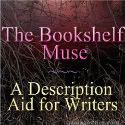Rockin' Around the Plot Clock
I just spent an amazing weekend with a dozen other writers, holed up in a house in Mount Dora, Florida. We dedicated 48+ hours of workshop time to thinking about plot.
I did a pretty good job plotting my first novel by the seat of my pants (I went back in revision and created a detailed step sheet), but I never really felt like I "got" plot. No matter how many craft books I read on the subject, how to structure a novel for maximum impact (and I mean, I wanted it to kill) just wasn't gelling for me.
After this weekend, consider me gelled. I get how the plot points fit together now, and how they ought to resonate off each other. I merely had to spend some time with Joyce Sweeney and Jamie Morris's brilliantly simple Plot Clock. The Plot Clock features in most of the Sweeney/Morris Next Level Weekend Craft Intensives, and I can't recommend these workshops too highly).
 |
| Sweeney and Morris: High Concept |
One was the recognition of my personal, emotional connection to the concept question we students wrote for our WIPs.
Your concept, as Sweeney and Morris see it, is best phrased as a universal question. If all goes well, your main character will answer it. The concept questions we came up with from picture books sounded something like this:
"If I am different from what my parents expect of me, will they still love me?" (The Little Matador).
or:
"How do you go about getting something that seems impossible?" (Tia Isa Wants a Car).
The best thing you can do for yourself as a writer--or do for your work--is to forge an unbreakable connection between your deepest self and your concept question. It should be a question you burn to answer. That passion will translate to your protagonist.
Once I understood the grip my concept question had on me, the way I could look down into it and see myself mirrored there, I knew the novel I'd started writing this month was going to fly.
So think about this: Have you written a concept question for your novel? And if so, how true and deep is your connection to it?
















AWESOME! I learned so much about plot at our writers conference this weekend. I am excited about it and working on "plotting" my next book. It's so nice when it makes sense.
ReplyDeleteBoy, I sure wish plot would gel for me :) Is it all about connecting to the concept question or is there more?
ReplyDelete@Susanna, I actually think the concept question and plotting are distinct issues -- the concept question deals more with theme, and the plotting with action and momentum, what drives the action forward. Sweeney and Morris use a four act structure. Think of a circle divided into four pie pieces. Your "inciting incident" occurs somewhere in the first pie wedge. The "low point" (your character hitting bottom) comes at the bottom of the circle. The "change" in the character occurs shortly after that. The "climax" occurs in the fourth pie wedge. That's a very, very simplified overview. I'll try to post more on this subject in future.
ReplyDeleteI love this... and no I don't have a concept question, but I might have spared myself some grief if I did. Definitely a must for my next project. Thanks!
ReplyDeleteAck! Plotting is a hairy subject for me. I have moments of clarity where I think I "get it" but they slip away all too quickly. But I am making headway thanks to The Plot Whisperer. I've gone through her YouTube series and have learned soooo much.
ReplyDeleteNo, I haven't done this before, but it sounds like a great idea! Thank you from a fellow Campaigner.
ReplyDeleteI say many thanks to the father of the website admin I read this, because at this website I know a lot of information information that I did not know before his
ReplyDeleteObat Untuk Atasi Kemandulan
Krim Penghilang Jerawat Terbaik
Obat Sakit Tenggorokan
Obat pembersih Rahim Kotor
Cara Mengatasi Gigi Berlubang
Obat Sakit Payudara Bengkak
Cara Menghilangkan Kejang Perut
Obat Herbal Bronkitis Kronis
Kopi Yang Sehat Bagi Jantung
Obat Insomnia Berat